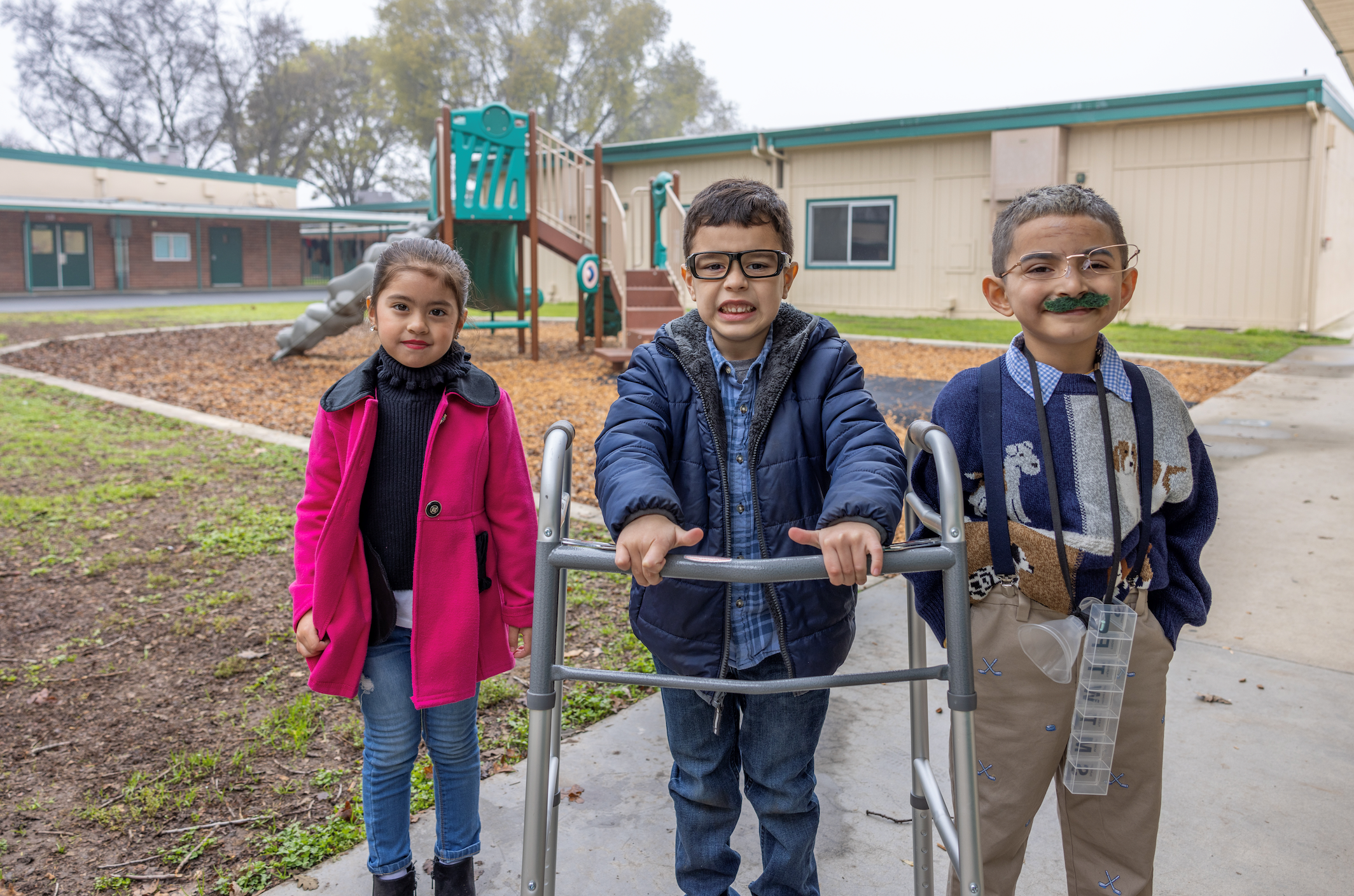
Houston Elementary students in Visalia Unified School District participate in the "100 Days in School" engagement event in 2024.
November marks Family and Community Engagement Month which recognizes that students whose families and communities participate in their education perform better academically, have higher graduation rates, and develop stronger social-emotional skills.
Family and Community Engagement Month carries additional significance as the updated California Standards for the Teaching Profession (CSTP) now require teachers to develop effective strategies for communicating and creating relationships with families.
The new standards are scheduled to go into effect during the 2026-27 academic year, and provide educators with a set of knowledge, skills, and abilities intended to benefit the academic achievement and well-being of all students.
“The CSTP are central to what it means to be an effective educator in California,” said Mary Vixie Sandy, executive director of the California Commission on Teacher Credentialing.
“The standards adopted in 2024 attend to the social, emotional, physical, cognitive, linguistic and academic needs of learners, and lay the groundwork for next steps in continuously improving teaching for students,” she said.
Diana Meza, associate director of the California Family and Community Engagement Initiative (CA FACE), is among the many supporters of the recommendations to ensure effective family engagement practices are learned and used by educators and families across all system levels.
"The inclusion of required family engagement strategies in the revised CSTP is a monumental step forward for California education. It formally recognizes what research has long confirmed: family engagement is integration, not isolation,” Meza said.
Engagement events are a cornerstone for many schools dedicated to fostering a sense of belonging among all families. From multicultural potlucks and literacy nights to parent workshops and student celebrations, each gathering is designed to build relationships and honor diverse perspectives.
In Visalia Unified School District, the annual 100 Days of School event at Houston Elementary is among the most popular and memorable events of the year.
“The ‘First 100 Days of School’ is such a fun tradition for our students and families! It’s a chance to celebrate how much our students have learned and grown since the start of the year. By having families join in on the fun, they’re reminded that they play an important part of their students’ academic journey,” said Houston Elementary Principal Monica Saenz.
The updated California Standards for the Teaching Profession are organized within the following six domains that embed California’s vision for teaching in an equitable, effective learning system:
- Engaging and supporting all students in learning
- Creating and maintaining effective environments for student learning
- Understanding and organizing subject matter for student learning
- Planning instruction and designing learning experiences for all students
- Assessing students for learning
- Developing as a professional educator
Element 1C, Student Backgrounds and Family Engagement, requires that teachers meaningfully engage and form partnerships with families, guardians, and caregivers in addressing each student’s learning needs, health, and well-being and are responsive to the range of economic, social, cultural, linguistic, and community factors that affect student development and learning.
Among the example indicators is to determine the most effective strategies for communicating with families, including those from under-resourced communities and those who communicate in languages other than English.
Lisa Borrego, senior director of CA FACE Initiative, adds that by requiring teachers to master effective communication and relationship-building with families, the CSTP move our entire system toward mutual, respectful partnership
“This approach honors that parents are experts on their children and ensures that educators leverage families’ knowledge and cultural wealth to support learning. When families and schools work together in partnership, students experience improved academic outcomes, greater well-being, and more equitable opportunities for success," said Borrego.
The CSTP guide each teacher’s pathway forward, from their educator preparation program through their two-year, job-embedded induction program, and then as a roadmap over the trajectory of their careers.
"When families are actively engaged in their child's education, it creates a powerful partnership that truly elevates student success. It's about so much more than homework, it's about a shared commitment to a student's well-being and academic journey. Family engagement is the foundation of a vibrant, high-achieving school community," said Alia Wilson, communications and community engagement manager for Sunnyvale School District.
This 2024 update was developed by the Commission on Teacher Credentialing in partnership with the California Department of Education (CDE). The California Standards for the Teaching Profession were originally developed and adopted in the 1990s and previously updated in 2009 as required by state law.
.png?sfvrsn=c28b72b1_10)
.png?sfvrsn=cd8b72b1_0)